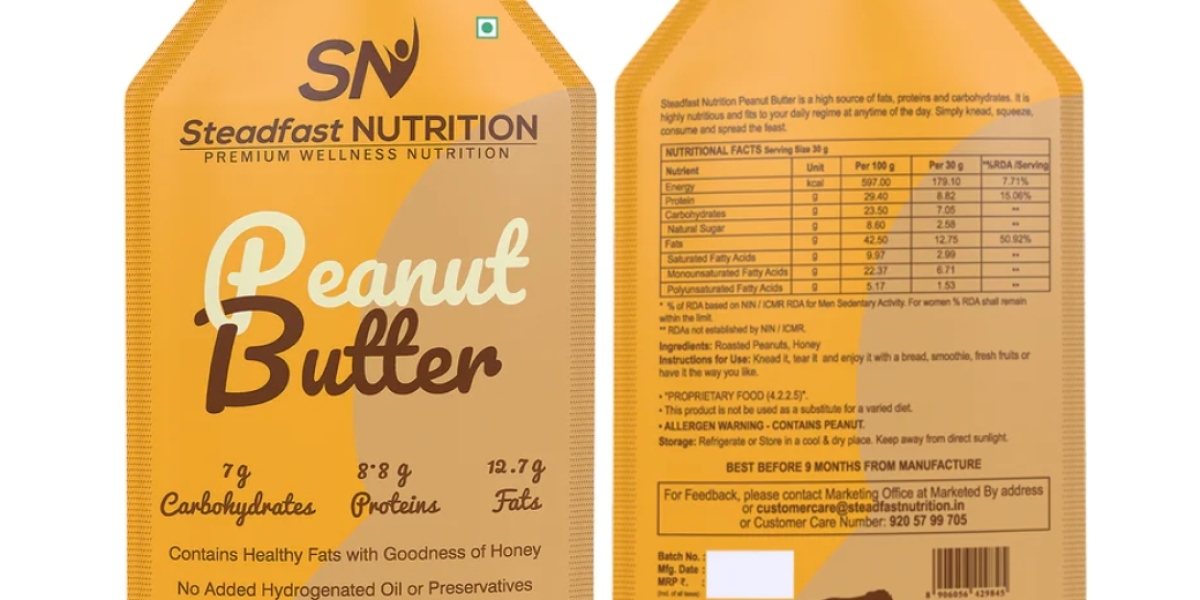For generations, peanut butter has held a special place in our kitchens, cherished for its rich creaminess and delightful nutty taste. But let's face it, not all peanut butter jars are cut from the same cloth, and figuring out which one is the healthiest can be a bit of a head-scratcher.
When it's time to shop for peanut butter, you'll encounter a wide array of options. There are the classic creamy and crunchy types, along with organic, natural, and even some gourmet varieties, leaving you with a dizzying array of choices. So, how on earth do you choose the perfect peanut butter for your well-being?
Choosing the Right Peanut Butter
Before buying Peanut butter consider these factors:
Ingredients: The best peanut butter should contain just peanuts and, optionally, a pinch of salt. Avoid products with added sugars, hydrogenated oils, or artificial additives. Natural peanut butter, where oil separation occurs, is often a good sign that it contains minimal ingredients.

Nutritional Content: Check the nutrition label for protein and healthy fats content. Peanut butter is a good source of protein, healthy monounsaturated fats, and various vitamins and minerals like vitamin E and magnesium. Avoid peanut butter with excessive added sugar, as it can negate the health benefits.
Allergen Considerations: If you have allergies, be cautious of cross-contamination in facilities that process peanuts. Look for peanut butter specifically labeled as allergen-free if necessary.
Health Benefits of Peanut Butter
Let's examine the health advantages of eating peanut butter now that you've selected the ideal brand for your requirements:
Rich in Protein: Peanut butter is a terrific complement to vegetarian and vegan diets because it is a great source of plant-based protein. Protein supports immune system health, muscle recovery, and general health.
Healthy Fats: Peanut butter contains heart-healthy monounsaturated fats that can help lower harmful cholesterol levels and lower the risk of heart disease.
Fiber: Dietary fiber in peanut butter helps with weight management by promoting a sensation of fullness and assisting with digestion.
Vitamins and minerals: Peanut butter is a rich source of important vitamins and minerals including magnesium, potassium, and vitamin E that promote overall health and well-being.
Tips for Adding Peanut Butter to Your Diet
Now that you know the benefits of peanut butter, let's explore creative ways to use it in your daily diet:
Spread it: Enjoy peanut butter on whole-grain toast or rice cakes for a quick and satisfying breakfast or snack.
Smoothies: Add a spoonful of peanut butter to your morning smoothie for a creamy texture and an extra protein boost.
Dipping Sauce: Mix peanut butter with soy sauce, honey, and a splash of lime juice to create a delicious dipping sauce for vegetables or grilled chicken.
Baking: Use peanut butter in baking recipes for cookies, brownies, and energy bars. It adds flavor and moisture while boosting the nutritional value.
Conclusion
When you buy peanut butter wisely, it can be a wholesome addition to your diet, offering a rich source of protein, healthy fats, and essential nutrients. Incorporating it into your meals and snacks creatively can enhance your nutrition. Just remember the importance of moderation. Consider adding Steadfast Nutrition products for a well-rounded dietary plan.









